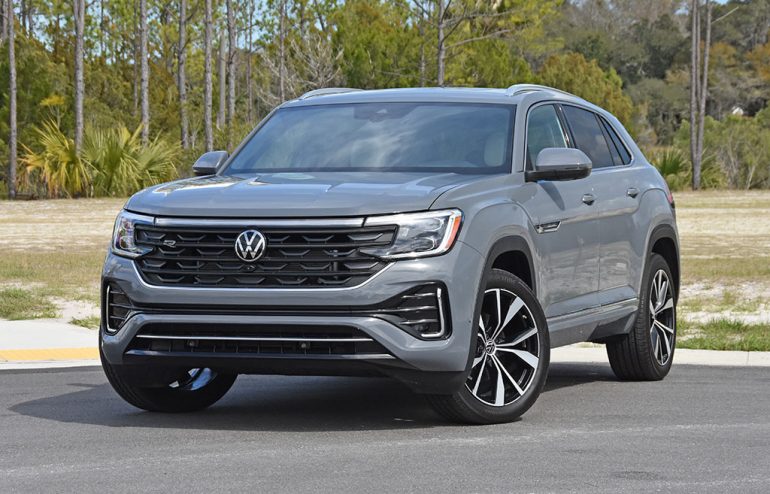
The Volkswagen Atlas has made a prominent mark among mainstream midsized crossovers, and the Cross Sport variation, with its two-rows of seating, builds upon the reputation of the original 3-row Atlas for a well-respected vehicle in the highly competitive SUV landscape. For the 2024 model year, the VW Atlas simplifies things by now having only one engine choice, the formidable 2.0-liter turbocharged 4-cylinder that replaces the V6 engine. Other notable changes for the 2024 model year include updated standard tech offerings and front and rear-end styling with stunning LED lighting elements that include illuminated front/rear VW logos.
From my previous review of the VW Atlas Cross Sport, I was pleased with how well it drives, and having the new turbocharged inline-4-cylinder engine doesn’t take away that experience from the outgoing V6. Having a healthy 269 horsepower and 273 lb-ft torque on tap to power all four wheels through an 8-speed automatic transmission makes the Atlas Cross Sport predictable after experiencing it for a day or two. The power is just right for the size of the Atlas Cross Sport, but there’s a slight disappointment in my top-level SEL Premium R-Line trim in that it being the sportier offering, it doesn’t necessarily add any usable “sport.” In fact, the way that the body tends loft around a little and never departs from a spongy, soft ride quality. Those who worry that the R-Line would be too aggressive will be at ease knowing it is far from being overly anything.
Also, don’t forget that you can get discounted new car pricing with a free quote through qualified local dealer partners.
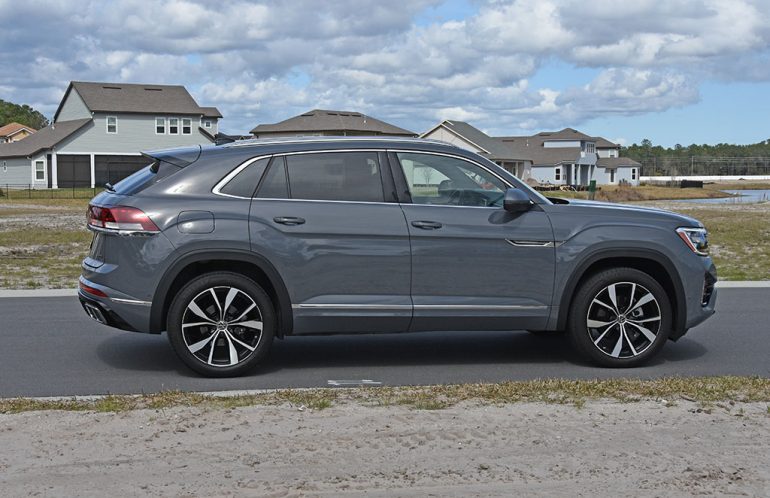
Acceleration is decent, and you’ll hit 60 mph in about 7.7 seconds from a standstill. Again, another aspect that isn’t considered very ‘sporty.’ The Atlas Cross Sport SEL Premium R-Line still behaves well on the open road and feels near the middle of the row for its mainstream competitors, which isn’t a bad place to be.
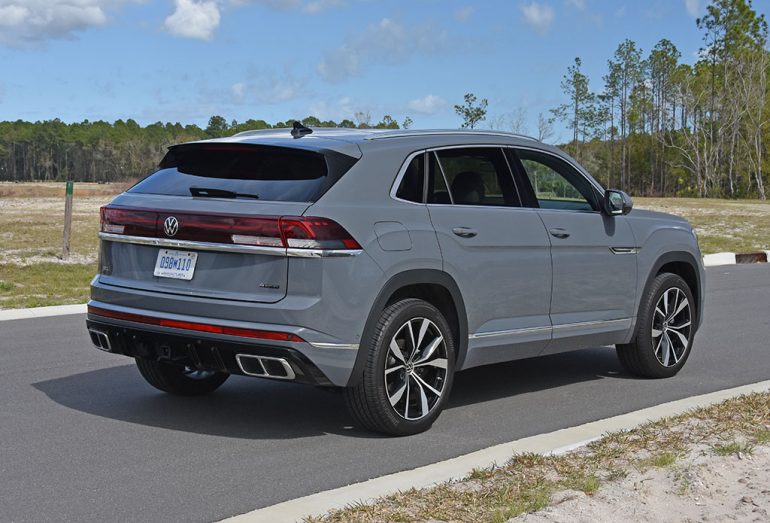
With the new engine being the only choice for the VW Atlas Cross Sport and it being a 2.0-liter turbo four, there are new expectations for better fuel economy over the V6, and that’s just what you get. The EPA figures being 19 mpg city, 26 mpg highway, and 23 mpg combined for the loaded-up all-wheel-drive (4MOTION) Atlas Cross Sport SEL Premium R-Line puts it in a much better position versus it having 3 mpg less or more in the outgoing V6 model. That fuel savings hopefully make up for the increased pricing, which has grown considerably since the Cross Sport variant was introduced a few years ago. Moreover, you can burn regular unleaded fuel without any power penalty.
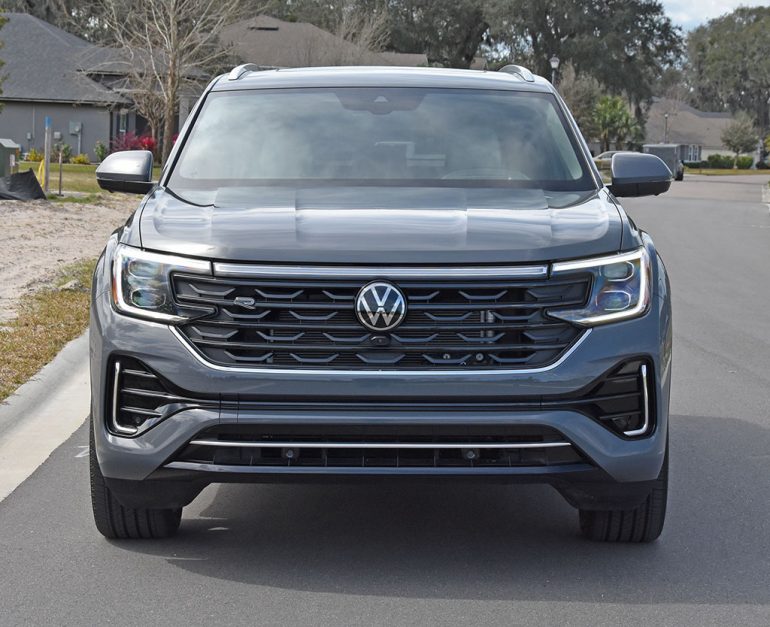
The cabin of the VW Atlas Cross Sport is cavernous and very accommodating for people of just about any size. The power driver’s seat has a large amount of adjustability, making it easy to find an optimal driving position for people of all sizes, and has decent visibility even with a somewhat high belt line. The rear seats have a good amount of space as well, with heated outboard seats and manual side window sunshades. Moreover, the cargo area is large for its class, with just over 40 cubic feet accessed by a power liftgate. Fold the 60/40 split seatbacks down, and you have over 77 cubic feet of storage.
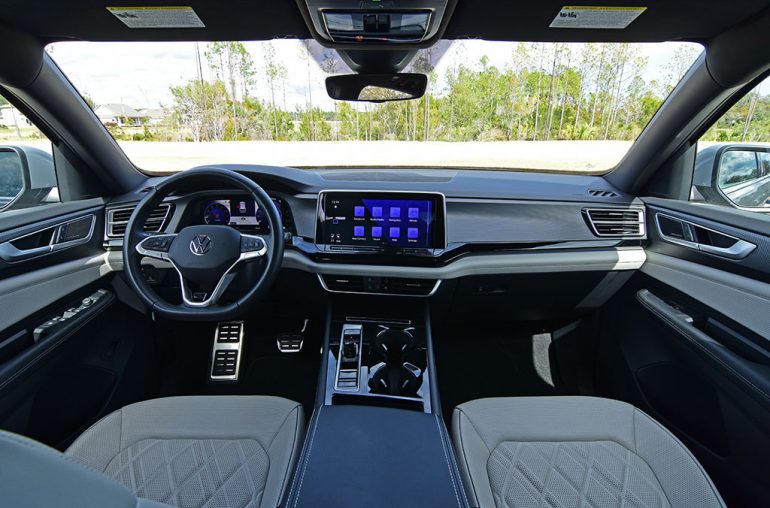
The new Atlas Cross Sport receives a reworking of its tech, but this is an area where I found Volkswagen really missed the boat with the initial usability of the infotainment system, which is fed through a new 12-inch touchscreen. Here, the system has inherent flaws that could easily be mitigated with a software update to ‘fix’ the issues of the audio system, which is one of the most cumbersome to use with a long learning curve. The system, when using features like SiriusXM, is a complete mess where core functions are difficult to access, which is a potential cause for unnecessary distraction.
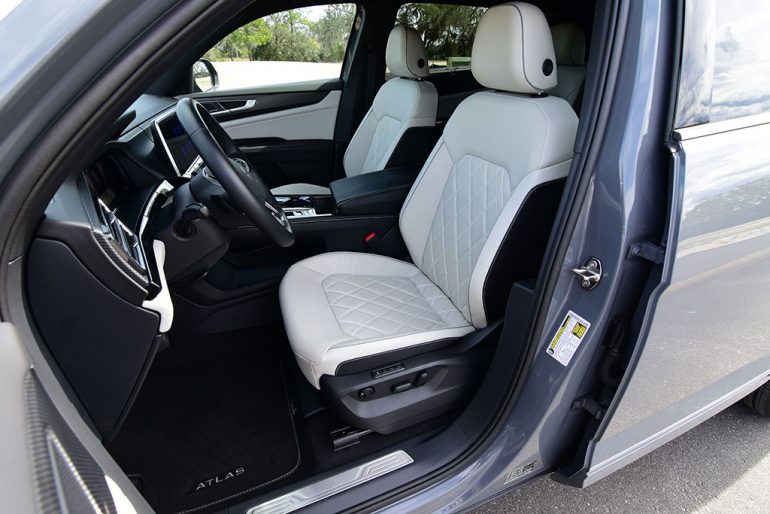
One unfortunate feature that cannot be fixed or improved upon with a software update is the fixed climate temperature and volume slider capacitive touch button areas not lighting up at night, leaving you to guess where to place your fingers. Such an oversight has been something that Volkswagen refuses to fix, which is possibly because you can use the touchscreen to access the climate functions. What is the purpose of having such convenient controls of you cannot see them at night? What are you thinking, Volkswagen?
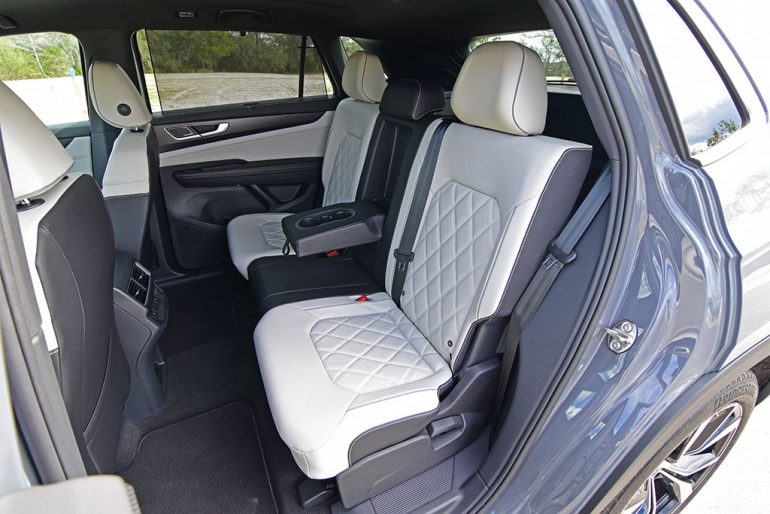
Despite the few shortcomings of the infotainment system and some ‘use only in the daytime’ controls, the system eventually does become friendly in some ways, but only after several days and hours of continuous use, which shouldn’t be a long-term issue for owners who are technologically savvy. The kicker is that not everyone is tech-savvy. Still, those who get frustrated easily will have issues for a long time. Thankfully, there are familiar features, such as the easy integration of wireless (or USB-connected) Apple CarPlay and Android Auto, in addition to the neat function of customization for your icons and color theme.
The rest of the controls in the new Atlas Cross Sport also take a little while to become accustomed to, with a few core feature buttons hiding access to vehicle settings. The vehicle’s settings screens have a neat way of portraying the functions using a visual adaptation of where the ‘feature’ is located on an onscreen display of the vehicle. The latest digital cockpit pro gauge cluster continues, welcoming customization features and the neat trick functions of viewing a live map in the cluster.
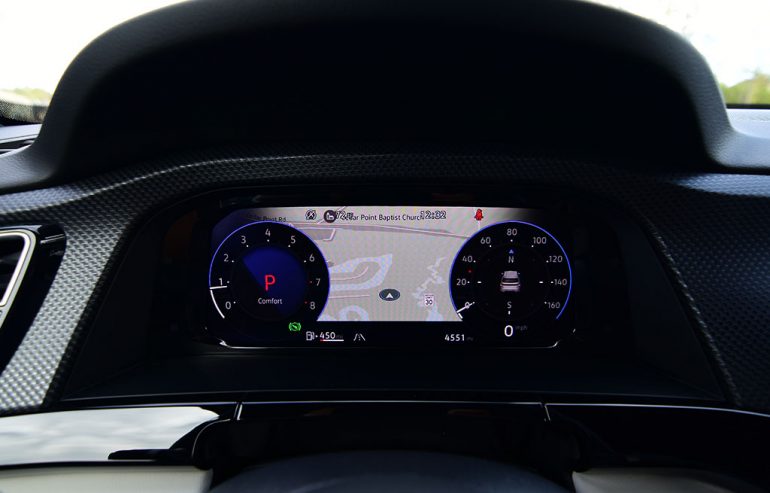
As expected, there’s a bevy of active safety features and near-luxury amenities in the top SEL Premium R-Line trim. Those highlights include adaptive cruise control, forward collision warning with autonomous emergency braking and pedestrian detection, lane keeping system, automatic LED headlights with auto highbeams, and a surround-view 360-degree backup camera.
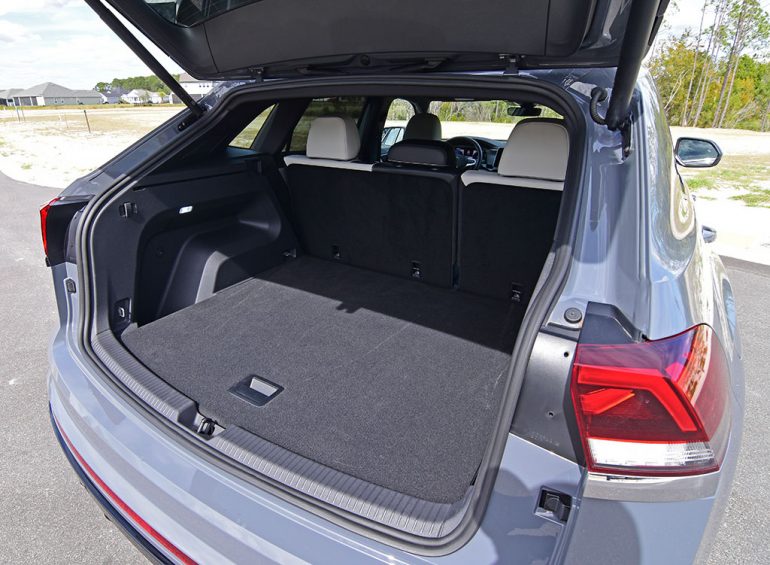
The Volkswagen Atlas Cross Sport, just like much of its competition, has had major price increases in the past years. As such, the new 2024 VW Atlas Cross Sport now starts at $36,985 for the base SE trim. From there, things rack up fast. There is a series of 5 trim levels all the way to my top trim SEL Premium R-Line test vehicle, which starts at $51,445, giving my test vehicle a price of $53,190 including a $1,350 destination charge.